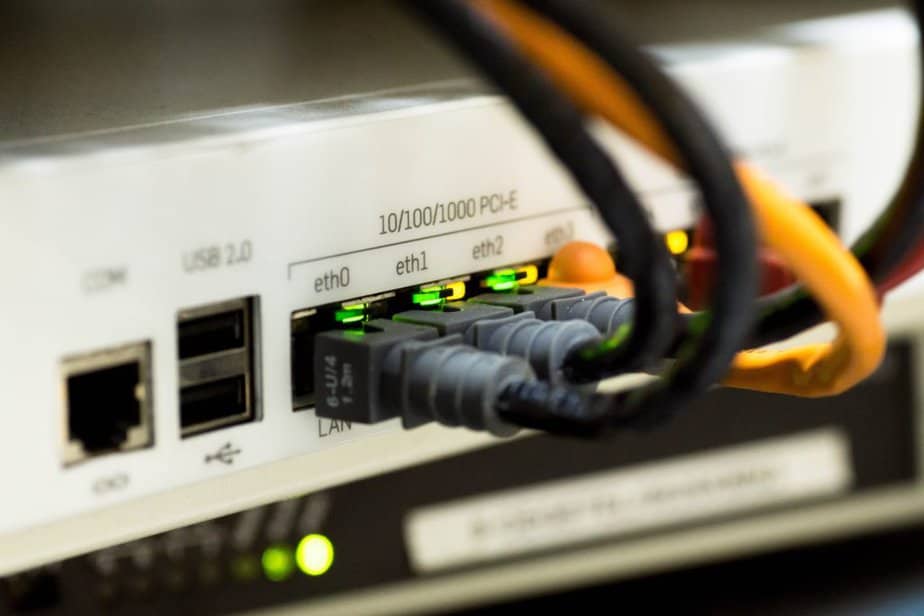The ability to connect digitally defines the success of a modern business. Fiber-optic and cable internet, the two most popular solutions, offer a wide spectrum of options. The aspects of functionality, reliability, availability and even speed differ between fiber and cable internet connections. The connection will affect the internet experience. Let us know more detail about ‘Cable Internet Vs Fiber Optic Connection’.

Cable Internet Vs Fiber Optic Connection
Bluntly based on the majority, fiber is better at delivering the fastest internet speeds, while the cable is far more accessible and frequently less expensive. Fiber-optic cable is observed as more advanced when compared to cable internet.
Internet speed
Fiber-optic internet is comparably faster than cable internet.
- Its speed ranges from 250 to 1,000 megabytes per second in both directions.
- Many users can access the fiber network without harming overall performance.
- Information travels much more quickly now.
For most small businesses and private homes, cable internet broadband speed is sufficient.
- Its download speeds range from 10 to 500 megabits per second (Mbps). It has a 5 to 50 Mbps upload speed efficiency.
- The cable network’s capacity is sufficient for heavy downloads, video streaming, and gaming.
- On a shared network, the speed slows down when traffic is high.
Obtainability
Cable internet access is widely accessible. You can get cable internet if you can access a cable television network.
Despite its growth, fiber internet connections are still not as widely available as cable internet, but they are more readily available than they were previously. It may be more challenging to get by in rural places, but it is perfect for businesses in major cities.
Dependability
Internet connections via fiber and cable are nearly identical in terms of dependability. However, things that affect electricity also impact cable internet connections.
Cable internet may not be a reliable source for you if you live in a region with regular cable outages and power outages. If you have cable internet, you may require backup internet providers in such situations.
Electricity outages do not affect fiber-optic internet connectivity. Because they produce the cords from glass and do not conduct electricity, you are able to access your fiber-optic network without electricity.
The fiber network is more dependable than other network connections since it provides consistent service.
Costliness
A cable internet connection is considerably less expensive than a fiber internet connection. Fiber internet used to be far more costly than cable internet because of its price and limited infrastructure, but that gap has narrowed significantly in recent years. A fiber-optic internet connection is more expensive than a cable internet connection.
Other internet types and how are they different?
1. Internet via DSL
Another frequent type of landline internet connection is a digital subscriber line (DSL). It delivers internet service over copper phone lines (aside from coax wires used for cable). DSL is slower and less dependable than cable and fiber.
It’s also not a shared connection like cable internet—like fiber-to-the-home deployments.
2. Internet via satellite
Sat Internet, as the name implies, uses satellites to send internet signals from your home to a network hub. Satellite internet services frequently have stringent limitations and severe latency that can cause inconvenience.
Conclusion
If fiber is reasonably priced in your location, take advantage of it. In most circumstances, it is faster and more dependable than cable. However, if you don’t have access to fiber or don’t require gigabit speeds, the cable is the next best option. Fiber-optic connections may be the best option for businesses that require the quickest internet connections, have higher capacity demands, and require reliability for demanding tasks. Businesses that don’t have servers on-site don’t need a lot of content and don’t need mission-critical internet applications may save money by going with cable.
Frequently Asked Questions regarding Cable vs. Fiber
- What makes fiber faster than cable?
Fiber-optic internet sends signals quicker than cable internet. Over an exceedingly long distance, fiber optics may sustain very high-frequency light signals—the higher the recurrence, the more data you can transfer at once. Instead of light, coaxial cables carry high-frequency electrical signals, which weaken as they move through the copper core, giving fewer data over the same distance as fiber. Electromagnetic interference can also disrupt and delay data flow.
- Is fiber required for fast internet?
Fast internet does not require fiber. One might gain a quicker internet connection (100 megabytes per second or faster) with a few diversified internet services, including fiber, cable, and DSL, depending on your definition of “fast internet.” “Fast internet” is just an internet connection that can handle your daily needs. If you live alone and want to watch Netflix on your phone, 25 megabytes per second should be sufficient. However, if you have a large group that uses the same network for gaming, streaming, working from home, and an assortment of other activities, you’ll need faster speeds—and both cable and fiber internet plans should suffice.

